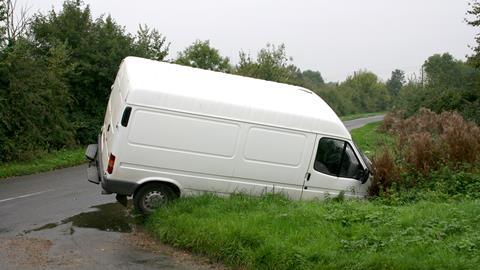Van driver speeding is at epidemic proportions, creating a major safety and cost issue that needs to be addressed by the new government, RED Corporate Driver Training said this week.
Its investigation into recent DfT figures has revealed that van drivers are the most likely group to speed in built-up areas and on motorways.
However, the DfT was unable to provide data on single carriageway roads due to the complex rules around speed limits for commercial vehicles, which RED said proves how little clarity there is around van speed limits.
DFT statistics shows that in free-flowing traffic in 30mph zones 45% of vans drivers were speeding, with 5% reaching speeds over 40mph.
On motorways, 47% of van drivers exceeded the 70mph limit with 10% breaking 80mph. With around 4.5 light million commercial vehicles on UK roads, approximately two million could have been speeding on densely populated roads and motorways.
RED head of corporate, Greg Ford, said: ”The instances of speeding in vans are remarkably and worryingly consistent across all road types that were measured.
”Extrapolate that across the millions of vans drivers at work in the UK, and it illustrates that drivers at work in commercial vehicles are breaking the law far too often.
“Not only does this provide a safety risk, but costs more too because the faster a van goes, the more fuel it uses, while also carrying inherent reputational damage for the company.”
Ford said the DfT figures fail to reveal the ”elephant in the room”, which he said is information on the amount of speeding commercial vehicles on National Speed Limit roads.
In its report, the DfT states: ‘The speed limit applicable to different types of van on this road type depends on the maximum laden weight and construction of the vehicle, which cannot be determined by our data source.’
Ford said: ”In our work with fleets, this is one of the single biggest sources of confusion, and risk: the speed limits for different commercial vehicle types and weights. So often when drivers come to us, they don’t know whether their commercial vehicle should be 56, 60 or 70mph on a dual carriageway, or 50, 56 or 60mph on a single.”
RED has produced a series of interactive e-learner videos, one of which explains the rules around commercial vehicle speed limits, and Ford says it is an area fleets need to address.
“As these DfT figures show, there are a lot of van drivers out there breaking speed limits. But what these figures don’t show, and it’s something fleets need to think about, is how many of their drivers are breaking speed limits without realising, because they’re unaware of the limit on their specific vehicle? Then, when a speeding ticket comes in, they’re shocked they’ve done something wrong, when they thought they were driving considerately,” he added.
RED’s new SafetyFirst platform ensures that every driver is risk assessed and has their licence checked, and can serve employees tailored e-learning, online or in-cab training to suit their circumstances, recording that they have undertaken, and understood the course.
Ford is also calling for the new Government to step in and make the issue of speeding higher profile, and not only from a safety perspective, but an environmental one too.
“We need to make speeding a taboo activity, and to do that it comes from the top down. There are lots of penalties and activity to punish speeding, but we need to create a culture where it becomes self-policing, rather than a battle between the motorist versus the police and technology,” he said.
“But also, this new government has a clearly stated aim to decarbonise our society, and reducing vehicle speeds will have a big impact on that. Slower, better driven vehicles use less fuel and produce fewer pollutants. We need to show drivers how this can benefit them, their employers and society at large.”
RED believes one action which could help is the mandatory adoption in vans of Intelligent Speed Assistance (ISA), which uses GPS technology, cameras and in-cab warnings to keep drivers below the legal limit.
The EU now mandates that all new vehicles built within its borders are fitted with the technology, but this does not apply in the UK. Ford would like to see the government move into line with the EU.
“For most cars, ISA is fitted as standard wherever they are built even if it is not mandated as in the EU,” he explained. ”But for vans this is not the case, not least because they are less well-equipped and built to a cost.
”With this epidemic of speeding though, we’d like to see all vans fitted with technology that helps drivers keep below the limit for their particular vehicle.
“That way a fleet can put in place clear policies on speeding, and with more training and better culture around sticking to speed limits, we can bring these shocking numbers down.”
















